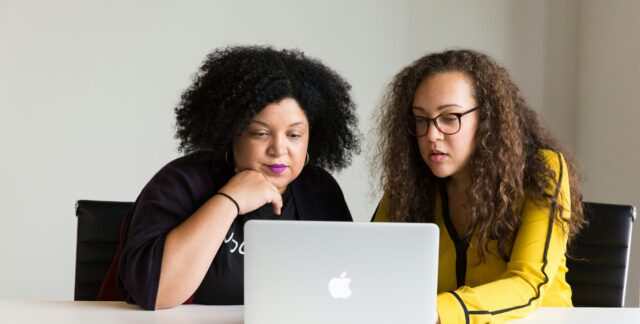The Mosaic network at the University of Sydney was created in 2018, at a time when multicultural diversity was not a focus within the ‘diversity’ agenda in the Australian Higher Education sector. It functions as a unique combination of a grassroots initiative with executive support and aims to challenge the status quo about experiences, support and progression of culturally and linguistically diverse (CALD) colleagues.
In creating Mosaic and giving it robust foundations, the network leads sought leadership buy-in and engaged with colleagues. Some of the themes that emerged at an initial all-staff workshop were that Mosaic should aim to increase visibility and influence the experiences of CALD staff at the university. Internalised stereotypes (for example, the negative or positive association-perception of certain groups) and lack of social acceptance were highlighted by workshop participants as inhibitors to a successful culturally inclusive workplace, while the role Mosaic could play was envisaged as providing networking opportunities, increasing awareness and influencing governance.
Mosaic follows a shared model of leadership with the Steering Committee led by three co-Chairs and is supported by an Executive Sponsor. The network collaborates with other like-minded groups to organise workshops on topics relevant to our communities (racism, microaggression), create opportunities to shift the workplace culture and create safe spaces in which colleagues share experiences. Mosaic’s Say My Name campaign which aims to help others pronounce a person’s name and signal additional languages (Figure 1) has been widely accepted by colleagues within and beyond the university.
Examples for the Say My Name campaign
- Naomi Koh Belic 許佳丽
- Nemone Goonasekera (Pronounced Neh-mo-ni Gu-ne-say-kara)
- Corinne Caillaud (Pronounced Korin Kayo, listen), Je parle Français
- Sally Sitou 陈莎莉
The challenges encountered by the network are likely to be familiar to others engaged in creating diversity interventions in Australia. These include:
- engaging beyond the ‘CALD bubble’;
- counting and examining culture; and
- delegating and diversifying the responsibility for creating change.
The responsibility of identifying and resolving equity-related issues continues to fall on individuals from specific minority groups. In the case of Mosaic, there is limited buy-in from voices or perspectives outside the CALD community and there is a gendered disinterest in being involved in equity initiatives.
As an attempt to resonate with people outside the interest groups they support, Mosaic has recently partnered with other stakeholders to develop an anti-racism pledge which encourages staff to listen, pause, reflect, and commit to take actions to create more inclusive spaces within teaching, research and other workplace practices.
In the 3 years that Mosaic has been operational, it has become an important resource for staff by creating safe spaces which allow CALD staff to share their experiences. However, a real challenge is how conversations within this group can actually guide action to address and overcome the obstacles we face: in other words, how do we go from being a support group to become an action group? By creating a direct line of communication to senior executives at the university via the Executive Sponsor, Mosaic now has opportunities to be heard at the highest levels within our institution.
Presenter
- Kumudika de Silva, the University of Sydney
Co-authors
From the University of Sydney:
- Fernanda Penaloza
- Zakia Hossain
- Dieter Hochuli
- Naomi Koh Belic
- Sanetta Du Toit
- Rahena Akhter
- Tracey Tsang
- Corinne Caillaud



